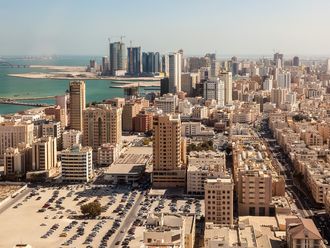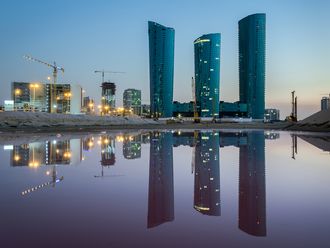Manama: Bahrain’s justice ministry has insisted that the Islamic Ulema Council had been dissolved by a court for operating “outside the confines of the law”, saying that it had refused to apply for a licence.
The council of Shiite religious scholars was banned last week by an administrative court acting upon a lawsuit filed in September by the justice ministry. The verdict angered the council members and their supporters who said that it was targeting their beliefs and vowed to resist it.
“The media generated brouhaha about the judicial ruling to dissolve the so-called ‘Ulema Council’ is a continuation of the deviation of political activities,” the Ministry of Justice, Islamic Affairs and Endowments said in a statement. “This is being done through a systematic instigation of religious feelings in order to divert the focus off the violation of the law when a sectarian political organisation was set up outside the legal confines.”
The ministry said that the relevant authorities had “often offered to those in charge of the council the chance to operate in accordance with law, but they invariably refused to work under the umbrella of the state.”
“They went so far as to claim publicly that the organisation was above the Constitution, the law and institutions, saying that it cannot be subject to ‘earthly laws’ as they put it. Such an attitude indicates a huge defect and a dangerous digression aimed at undermining the concept of the state and the notions of modernity,” the ministry said.
Allegations that an Islamic sect or its rituals or culture is a “culture of minorities” or that it is targeted cannot be at all accepted, it added.
“On the contrary, all Islamic sects in the Kingdom of Bahrain are part of the Islamic religion and national identity. Such beliefs have led to the establishment of the Supreme Council for Islamic Affairs — which was unanimously endorsed at the time of its formation — as a unifying council for all Islamic sects in order to preserve the religion of the people and the specifics of their sects and spare them rifts.”
The ministry “wondered how people dared to describe a political organisation as the religion and doctrine, and that its dissolution o was a dissolution of religion.”
“This attitude reflected the level of political sectarianism within this organisation and the magnitude of its extremist tendencies that threatened the national fabric by pursuing a political sectarianism,” it said.
The ministry charged that “the sectarianism represented by this organisation was a scheme to undermine Islamic unity, tamper with the national fabric and target the concept of citizenship, the principles of the rule of law, equality and responsibility before the law, by trying to implement the ‘Wilayat Al Faqeeh’ concept in Bahrain,” referring to the Shiite system of governance of Iran.
It added that the duty of the state was “to take the necessary legal measures to protect the community, maintain national security and public safety, public order and to protect the rights and freedoms of others, without laxity or negligence”.











